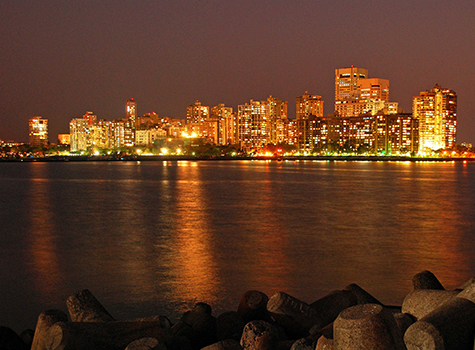
People I know who are 24-29 ask me things these days. Massive questions, like, “What have you learned, Dipika, from all of your world travels?â€
What did I learn from studying in, working in, or traversing through 27 countries over just as many years, they want to know. Well. Nothing pops to mind in a crystallized, fixed, one-size-fits-all solid solution.
Of course, not; we change as we grow.
But that doesn’t mean I can’t suss it out a bit. At the time of this writing, I’ve reached out to half a dozen mentors and friends who’ve worked in high schools or have kids in them, for comment on this. Nothing’s come back so far; it’s a mammoth question, so I understand. It takes time to formulate some kind of response. Honest self-reflection, too. I can wait.
Meantime, I’m reading, listening, joining email lists on the topic of Personal Growth, investigating blogs, finding out about podcasts, and, of course, occasionally dipping into the ocean of social media posts.
But very rarely do I find something that I can say, ‘Yeah, that applies, even with the pandemic-adjusted world, it still fits.’ While it’s a given that human beings throughout time have already done a ton of contemplating and philosophizing, meaning that somewhere beyond my reach there are gems, whatever I find that’s nearing them feels overly esoteric.
Sometimes I circle back to old, online commencement speeches that I used to think were fiercely illuminating, but, reflecting from this vantage, with hindsight, I now see that they fail to consider all the things we know now, and factor in that mark 2024, and not 2014.
I can understand this two-way effort to share. It’s natural to want to seek solutions elsewhere when we’re young and put existential questions to our elders. By the same token, it’s also possible to fall into a trap, the one in which you try to cobble up something to say.
Another version of me might’ve started in on a monologue or sent out some kind of short prescriptive self-help style of eBook, to those who might ask me things. But to answer this ‘advice’ question, though it may be a well-intentioned attempt, is an ultimately pointless endeavor. How can you respond meaningfully to someone whom you don’t know well, and who doesn’t know you? We need time to get familiar with each other, and even then, the best course of action, I feel, is to simply be quiet, and stay still.
Instead of seizing the opportunity to ramble, to spout off whatever pops to mind, I’d rather not. I’d prefer to refrain from rising to the occasion to deliver an expected mini-speech, chock full of ‘pro tips’ for a younger person who may be looking for quote-unquote answers. Because, in my opinion, such so-called solutions will have been mere precipitates out of a sea that remains uncolored by what we don’t know we don’t know. In other words, it’s incomplete.
Today, shaped by a decade in Southeast Asia, mostly in Cambodia (but also twenty months in pretty much solitude in Việt Nam- pandemic), I’m quieter.
I’m someone who’d rather say nothing. At all. Even when younger people may choose to press, I’ll go quiet. They’ll wait. I’ll keep steady.
‘Go on,’ I might offer. ‘I am listening.’
This is why. If you spend a little time letting people talk their way through a thing, I’ve learned, they will hit on important insights all by themselves. Perhaps a set of tentatively asked questions will arrive, starting in a drizzle, ‘Why am I doing this?’ ‘What do you think?’, but then, these may, if you give them some room, crescendo into monsoon-season-size downpours. ‘What can I do that’s more than just this? I want meaning in my life; I want significance in my work. How do I get those?’ By this point, we’ll have gotten up to our ankles in water, but, if we are both equally patient, this, too, soon subsides. New worlds can open, as calmed waters begin to drain.
Lately, I am careful, as others have been kind enough to do for me in my time of waiting for the chance to leave Việt Nam without knowing when I could, to handle conversations of this nature delicately. To note these small treasures of shared expressions, to receive them as they are, patiently, with warmth and softness. A neighbor, a woman running a shop on Trần Quang Diệu in Sà i Gòn’s District 3, had put it so well: Give time and try to understand.
‘Anything else?’
‘No; thanks for listening, Dipika.’
‘Sure.’
Listening takes mutuality. It takes care. It takes skill and if we’re lucky, we’ll have seen it early on in our lives modeled well by our elders. I believe that active listening is a practice and a process. It takes real trust. Trusting the process. Trusting yourself. Multicultural, multigenerational exchanges, of late are teaching this.
Silence is where the magic really happens.
Dipika Kohli is an author who is based in Phnom Penh. Discover her books at kismuth.com and other projects at dipikakohli.com.



